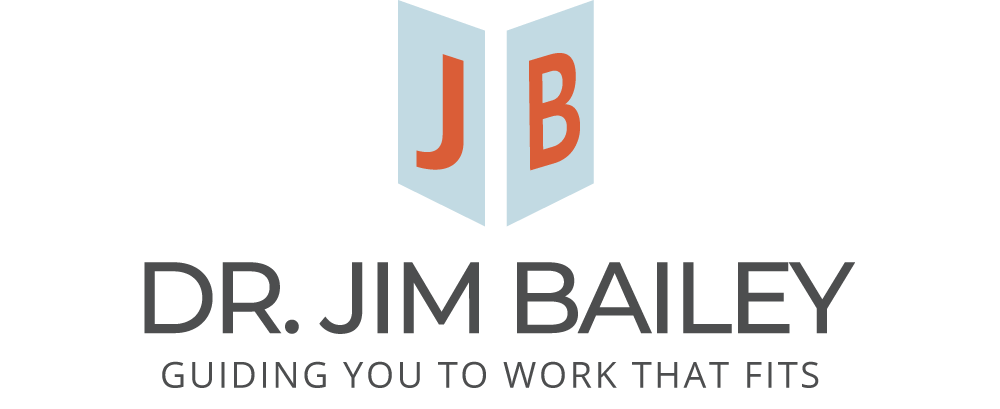Why Do You Do What You Do? - Choosing a Career
How often do you ask the question, “Why am I doing this?”
As a person who runs his own business, a sole proprietor as my bank would say, I understand that the success or failure of my work largely depends on whether people decide that the services I provide fit a need they feel or think they have, then pay me to provide those services. It’s a question of matching what they are looking for to what I provide.
In simplest terms it’s a question of matching their “What” to my “What”. If the characteristics of what I say I can provide them match what they think or feel they need then they are more likely to buy from me. It’s a principle that drives most television, radio and web-driven marketing. People are always trying to convince us of what we need then tell us that their product will completely fill that need. Look closely and read between the lines of most advertising and you’ll see or hear a message: “Your life is incomplete because of this problem. We provide the solution to your problem. Buy it and your problem will be solved.”
If you’ve ever known someone with a repetitive purchasing habit, you’ve likely seen the cyclical pattern this type of reasoning promotes. I once knew a man who annually purchased new golf clubs in pursuit of a better golf game. Every year he bought a new driver in the hope that he would improve his long game – his ability to hit the golf ball longer distances down the fairways – or a new putter in the hope that he would become more accurate in his attempts to put golf balls in holes when (or if) he made it to the greens.
Ironically, his greatest challenge wasn’t in the equipment he used to play golf but, rather, the fact that he had limited athletic ability and the coordination to make the movements needed to be a good golfer. He had confused the question of “Why” he was a poor golfer with the question of “What” he needed to become a good golfer. None of his equipment purchases were ever going to overcome his underlying problem of genetic inability to properly swing a golf club.
In the world of job fit far too many of us ever stop to ask questions about “Why” our job fails to provide us with the things we want from a job. Most often we move quickly to questions of “What” we should be doing or “What” job will give us what we are lacking or want, rather than asking important questions about “Why” isn’t this working?
So, why do so few of us ask “Why” questions?
To be honest, the reasons are as numerous and varied as the individual differences that make us distinct from each other. But, in my experience there are some general themes that may explain why we seek “What” solutions to our “Why” job problems.
The first relates back to the marketing culture we live in. Over time, to a smaller or larger degree, we each buy into the idea of one-time-fix to our job fit problems. Who can blame us? Depending on the degree of our connection to the communication world we are exposed to dozens or hundreds of messages each day about the product or action or lifestyle that will answer our perceived needs. We naturally buy into the idea that a thing or a way will solve our problem.
The second reason is driven by our aversion to the time, work, energy or financial cost of answering the “Why” questions. We want our answers quickly, with a minimum expenditure of effort or expense. In a society of immediate gratification there are very few of us willing to invest in the process necessary to answer “Why” questions. Because “Why” questions are inherently more complex and difficult to dissect and understand, the process of answering them requires a higher level of patience and a willingness to invest the things (time, work, energy, etc.) needed to answer them.
Finally, asking and answering “Why” questions require a level of humility and self-awareness that only some of us possess. Humility is required of the person willing to find “Why” answers because seekers of such things must first admit that they are in need - insufficient in themselves to discern them - or they would have already found them and moved on. And self-awareness is required because a person who would seek such things must first be aware that they have areas of insufficiency – blind spots or limitations, if you will – to “fix” themselves and are thus dependent on an outside perspective if they are to find the “Why” answers.
So, while there is some support for me to offer products and services that will resonate with the person seeking a “What” solution to their job fit problems, it is the person who is willing to pursue questions of “Why” a job or career path or approach to work problems isn’t a good fit that is more likely to be successful in their work with me. It’s only by first asking, “Why isn’t this working” and “Why do I do better in these types of situations and worse in these types?” that a person is likely to find the answers that lead to more substantial life and work change.
Quick, easy or cheap solutions that apply a “What” answer to a “Why” question rarely lead to substantial and lasting changes.

